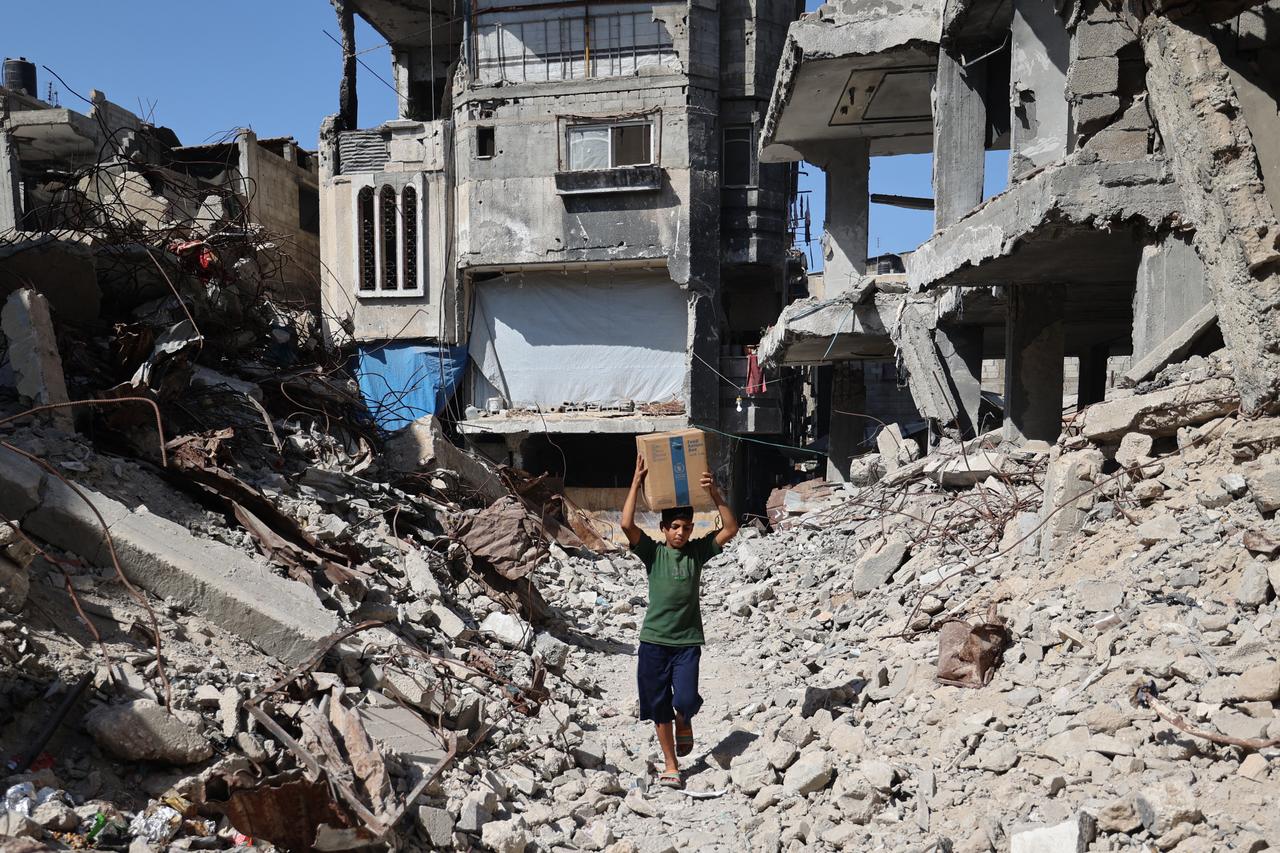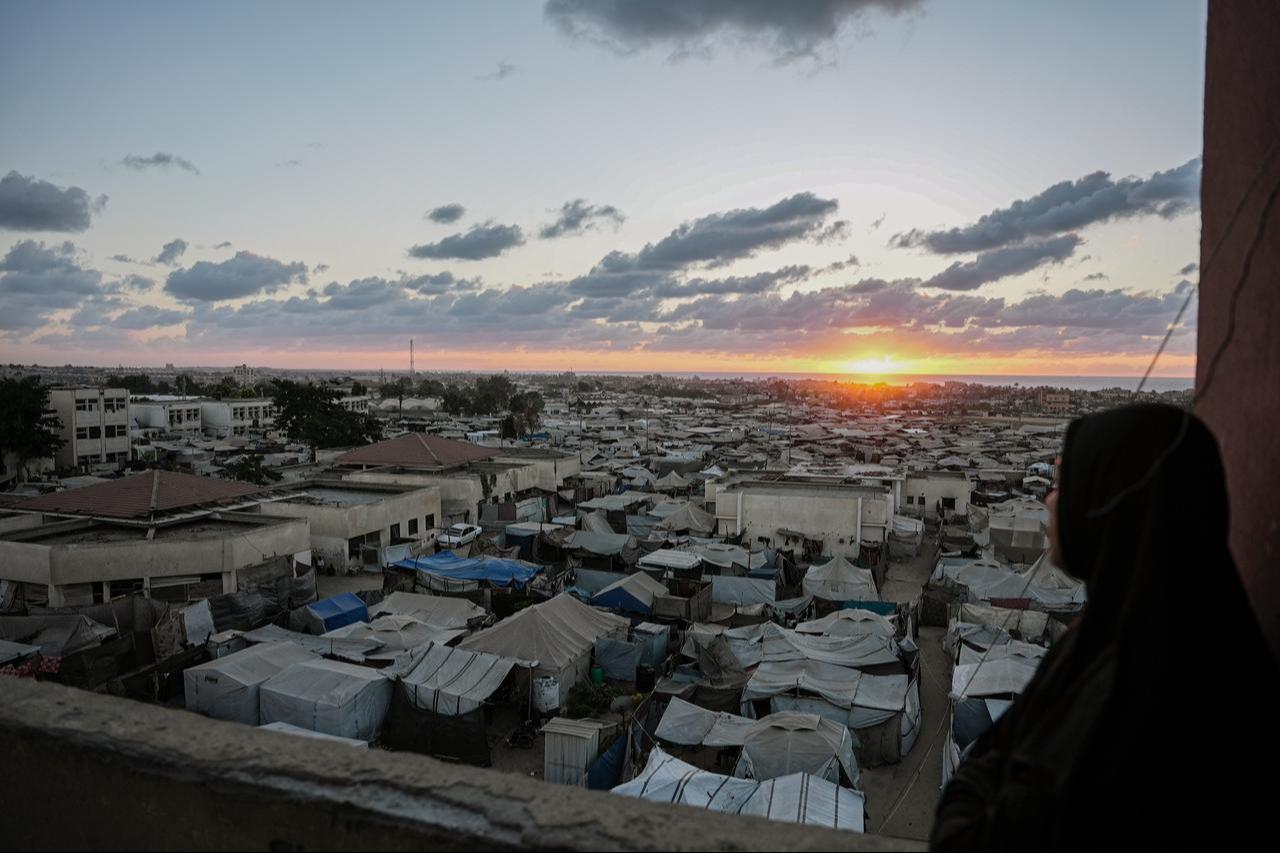
The Nuremberg Tribunal, which tried high-ranking Nazi officials involved in atrocities during World War II, laid the foundations of international criminal law.
Thanks to the Nuremberg and Tokyo trials, it was accepted that everyone, including heads of state, could be held responsible for crimes against humanity, war crimes, genocide and crimes against peace.
In 1998, the founding treaty called the "Rome Statute for the International Criminal Court (ICC)" was signed; in 2002, with its ratification, it entered into force, and the ICC began operating to prosecute crimes of “war crimes, crimes against humanity, and genocide.”
In 2010, the Kampala Amendments, which introduced various restrictions to the statute, were adopted, and as of 2018, the “crime of aggression” was activated as a crime that the ICC could prosecute.
Since the International Military Tribunal at Nuremberg, the international law framework has been based on victor’s justice and was shaped by the so-called “Global North,” protecting the rights of powerful states.
The design of the U.N. system incorporated built-in obstacles through the Security Council. Furthermore, the ICC is a fragile institution, lacking its own police force and relying heavily on the cooperation and protection of its member states.
It has come under pressure from powerful nations. Therefore, despite 80 years having passed since the Nuremberg tribunals, the international legal system still contains serious shortcomings, and the perception of double standards in practice is growing stronger.
The ongoing wars in Russia-Ukraine and Gaza today have brought these deep deficiencies back to the agenda.
Russia’s intervention in Ukraine and Israel’s military operations in Gaza have caused large civilian casualties, displacement and destruction of civilian infrastructure; such actions are often defined as war crimes and crimes against humanity.
In Israel’s case, as is known, the crime of “genocide” is also on the agenda.
The dual attitude of the countries that are the architects of the rules-based order towards Russia and Israel undermines the legitimacy of international justice, and selective justice cannot ease consciences.
At present, the ICC has issued arrest warrants for six Russian nationals, including President Vladimir Putin.
The crimes in question are the unlawful deportation of Ukrainian children deported to Russia or Russian-occupied areas, which is a war crime; directing attacks at civilian objects; and causing excessive incidental harm to civilians or damage to civilian objects under war crimes and crimes against humanity.
In 2018, the path was opened for the ICC to prosecute individuals responsible for the crime of aggression, but in pursuing aggression crimes, there are jurisdictional limitations on one hand and political limitations on the other.
For example, Russia’s annexation of Crimea in 2014 and the full-scale invasion of Ukraine in 2022 constitute a serious violation of international law not only in terms of war crimes and crimes against humanity but also concerning the “crime of aggression.”
However, due to jurisdictional limitations, the ICC cannot prosecute Russian nationals for the crime of aggression on the one hand because Russia has not ratified the Rome Statute, and on the other hand, the alternative way to prosecute an aggressor that is not party to the Statute is obstructed.
The necessary U.N. Security Council referral is blocked due to Russia’s veto power.
This is not merely a technical issue but also a significant limitation that threatens the integrity of international justice.
To address this deficiency, there is now a strong consensus within the international community and among many states in favor of establishing a special tribunal against Russia’s crime of aggression in Ukraine and amending the Rome Statute of the ICC so that it can prosecute the crime of aggression more broadly and consistently.
Before Oct. 7, Palestine had made repeated appeals for protection, but the ICC Prosecutor was very slow to start an investigation. After the Oct. 7 attacks, the court was criticized for acting quickly against Russian nationals but moving slowly when it came to possible crimes by Israeli nationals.
Eventually, after receiving financial support from some member states, the prosecutor opened an investigation into crimes committed by Israeli nationals.
This led to arrest warrants for Israeli Prime Minister Netanyahu, former Defense Minister Gallant, and three Hamas leaders. But throughout the process—and even after the warrants were issued—the ICC faced strong political pressure and objections from the U.S., the U.K., and Germany.
The good news is that a few days ago, the ICC rejected for a second time the Israeli bid to appeal against arrest warrants for Netanyahu and Gallant. When it comes to arrest warrants for three Hamas leaders, the court dropped these as they were killed by Israel.
The U.S., which is not a party to the ICC, has engaged with the court selectively, based on its own interests.
When the court sought to investigate alleged crimes committed by U.S. personnel in Afghanistan, the U.S. imposed sanctions on the ICC and rejected its jurisdiction over nationals of non-member states without their government’s consent.
However, this position was reversed in the case of Ukraine, where the U.S. supported the court’s investigation into crimes committed by Russian nationals, despite Russia not being a party to the Rome Statute.

The architects of the rules-based order, while laying out the principles that gave birth to international law, at the same time hide behind the excuse of state sovereignty and use the international law selectively to disregard international justice for the sake of their national interests or to avoid accountability.
International law experts argue that legal arguments presented in defense of Israel could equally be used to save Vladimir Putin from prosecution.
They point out that similar tactics—such as aerial bombardments and siege warfare—have been used in both Ukraine and Gaza, and that the legal justifications presented by U.S. and Israeli military lawyers in the Gaza context contradict the jurisprudence of the International Criminal Tribunal for the former Yugoslavia (ICTY) concerning the siege of Sarajevo—jurisprudence that is, in fact, crucial to the ICC’s ability to prosecute war crimes in Ukraine.
The international community’s determination to punish Russia while turning a blind eye to Israel’s injustices is leading to international law becoming a selective tool and reinforcing the widespread belief that justice only applies to powerful states, which also harms the legitimacy of the ICC.
With the blockage of the UNSC, the United Nations General Assembly (UNGA)—where the majority is made up of the “Global South”—will play a more important role in the coming period in ensuring international justice.
For establishing an international special tribunal for the international crimes committed by Russia in Ukraine, a UNGA mandate. Therefore, the majority at the UNGA needs to have their conscience eased regarding double standards…
For the ICC to continue to function as a credible enforcer of international law, its impartiality must be affirmed and its independence strengthened.
No state, and no group, should ever again be able to resort to aggression, believing they can escape accountability for their actions.
For further on the topic: M. J. Breger and Herbert R. Reginbogin (eds.), Nuremberg Principles and Ukraine, Bloomsbury, October 2025.